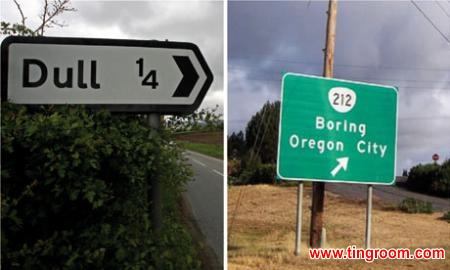听播客学英语 03 枯燥和乏味
时间:2019-02-08 作者:英语课 分类:听播客学英语
英语课

Dull, twinned with Boring
Do you know the English word “dull”? “Dull” is the opposite of “bright”. Often it means “uninteresting”. We can talk about dull weather, which means cloudy weather, probably some rain and certainly no sunshine. We can talk about a dull book or a dull lesson. And we can say that someone is dull – a dull person is probably not very intelligent, and has nothing interesting or lively or amusing 1 to say. We have a saying in English that “All work and no play makes Jack 2 a dull boy”. Do you know someone who works all the time and never relaxes and never goes out to enjoy themselves?
And I am sure that you all know the word “boring”. It means unexciting and uninteresting. It is a favourite word of English teenagers. If their parents suggest something to them, like “Shall we all go to the cinema tonight?”, the teenager will probably reply “boring”, because when you are 15 years old, any activity involving your parents is boring.
There is a village in Scotland called Dull. It is very small, with only a single row of houses. There is a church, but it has not been used for several years. There is a school too, but it is closed. In the past, Dull was quite interesting. It was an early Christian 3 settlement, and there was an abbey where the church now stands. But nothing interesting seems to have happened in Dull for several hundred years, and today Dull seems to be a very dull place indeed.
Elizabeth Leighton lives in Dull. However, she is obviously not a dull person, because recently she went for a cycling holiday in America. And while she was there she discovered a town called Boring. Boring is in Oregon, in the north-west of the United States. The north west of the United States is a bit like Scotland – lots of rain, and snow in the winter. Boring has about 12,000 inhabitants, which means that it is quite a bit bigger than Dull. But is it any more interesting? It has a timber 4 mill, and a place where they train guide dogs for blind people. But the railway line closed years ago, and I guess that many of the inhabitants of Boring commute 5 to work every day to the city of Portland, which is not far away.
Elizabeth Leighton had the great idea that Dull and Boring should become ‘twin communities’. There could be a sign outside Dull saying “Dull, twinned with Boring” and a sign outside Boring saying “Boring, twinned with Dull”. And people passing by would smile and think that, even if Boring is boring, and Dull is dull, people in the two communities at least have a sense of humour. The local authorities in Dull and Boring are now considering Elizabeth’s idea.
Now I don’t want to spoil a good story for you, but I have to point out that Dull is not called Dull because it is a dull place. The name Dull comes from the Scottish Gaelic language, and probably means “meadow”. And Boring is named after an old soldier from the American Civil War who was called William H Boring. After the war, he settled in Oregon, and lived there until he died in 1932. Because William Boring lived nearby, and was one of the leading citizens of the place, it was natural for the railway company, and later the US Post Office, to call the settlement “Boring” in his honour.
adj.有有趣的,好玩的
- The girl was amusing herself with a doll.那女孩在玩洋娃娃自娱。
- He related some amusing stories in his childhood to his children.他向孩子们述说了他少年时代的一些趣事。
n.插座,千斤顶,男人;v.抬起,提醒,扛举;n.(Jake)杰克
- I am looking for the headphone jack.我正在找寻头戴式耳机插孔。
- He lifted the car with a jack to change the flat tyre.他用千斤顶把车顶起来换下瘪轮胎。
adj.基督教徒的;n.基督教徒
- They always addressed each other by their Christian name.他们总是以教名互相称呼。
- His mother is a sincere Christian.他母亲是个虔诚的基督教徒。
n.木材,原木,大木料,栋木
- These trees need more time to grow into useful timber.这些树不够年头,还没成材呢。
- The timber is graded according to its thickness.木材按厚度分级。
标签:
英语播客